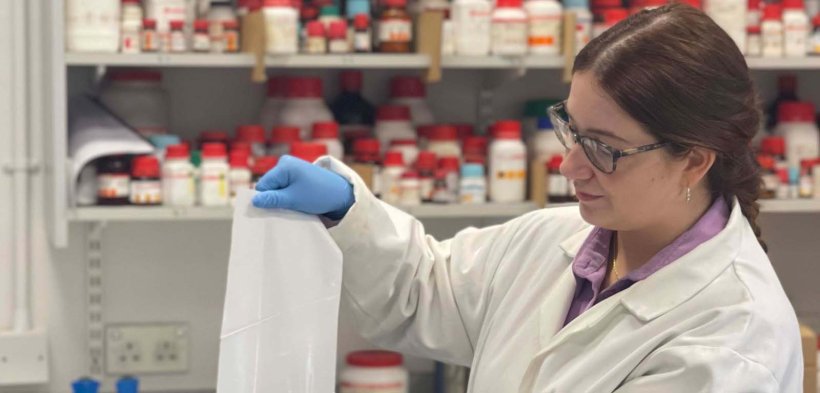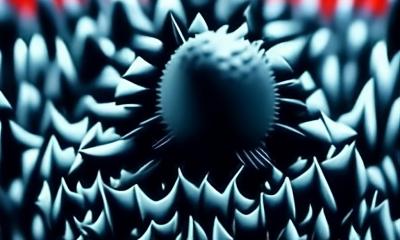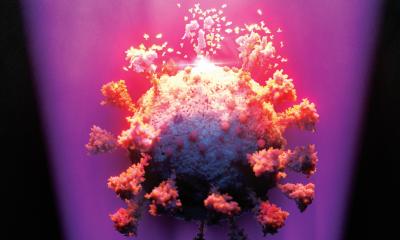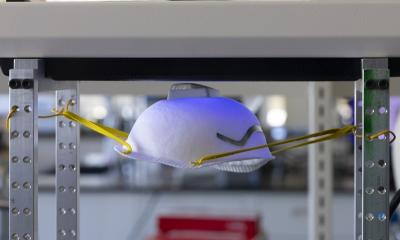
Image source: Queen's University Belfast
News • Photocatalytic surface
A new plastic film that uses room lights to kill viruses
Researchers at Queen’s University Belfast have developed a new plastic film that can kill viruses that land on its surface with room light.
The self-sterilising film is the first of its kind – it is low cost to produce, can be readily scaled and could be used for disposable aprons, tablecloths, and curtains in hospitals. It is coated with a thin layer of particles that absorb UV light and produce reactive oxygen species – ROS. These kill viruses, including SARS-CoV-2. The technology used to create the film also ensures it is degradable – unlike the current disposable plastic films it would replace, which is much more environmentally friendly. This could lead to a significant reduction in the transmission of viruses in healthcare environments but also in other settings that uses plastic films – for example, food production factories.
The researchers tested the film for anti-viral activity using four different viruses – two strains of influenza A virus, a highly-stable picornavirus called EMCV and SARS2 – exposing it to either UVA radiation or with light from a cool white light fluorescent lamp. They found that the film is effective at killing all of the viruses – even in a room lit with just white fluorescent tubes. The research, which has been published in the Journal of Photochemistry and Photobiology B: Biology, was carried out by Professor Andrew Mills, Dr Ri Han and Dr Christopher O’Rourke in the School of Chemistry and Chemical Engineering at Queen’s University Belfast and Dr Connor Bamford and Dr Jonathon D. Coey at the Wellcome-Wolfson Institute for Experimental Medicine in the School of Medicine, Dentistry and Biomedical Sciences at Queen’s.
Through rigorous testing we have found that [this film] is effective at killing viruses with just room light
Andrew Mills
Professor Andrew Mills comments: “This film could replace many of the disposable plastic films used in the healthcare industry as it has the added value of being self-sterilising at no real extra cost. Through rigorous testing we have found that it is effective at killing viruses with just room light – this is the first time that anything like this has been developed and we hope that it will be a huge benefit to society.”
Dr Connor Bamford says: “Pathogenic viruses like SARS2 and influenza will continue to be global problem for years to come. In developing self-sterilising thin plastic films, we have created a low-cost technology that could have a significant impact on the transmission of such concerning viruses in a healthcare environment and other sectors where they are used.”
The project was funded by the Engineering and Physical Research Council, which is part of UK Research and Innovation. EPSRC Director for Cross Council Programmes, Dr Kedar Pandya, comments: “This is a hugely exciting development which has the potential to dramatically reduce the transmission of viruses across a wide range of settings while being environmentally sustainable. It is an excellent example of adventurous, innovative research which has the potential to improve the lives of millions of people.”
Source: Queen's University Belfast
12.09.2022





